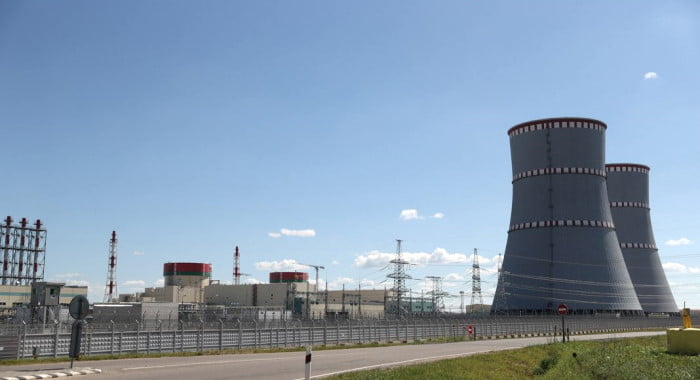The discussion, controversy, safety concerns, and regional uproar over the Astravyets nuclear plant continue to roll on...
On Tuesday, Lithuania proposed to Estonia and Latvia a new, slightly amended methodology for power trade with Russia, one that Energy Minister Dainius Kreivys says will impose an effective blockade on electricity from the controversial Belarusian nuclear plant.
The minister says that Vilnius expects their Baltic neighbours to agree with the new plan by late June, but that Lithuania has a plan B of it's own if no deal is reached.
Kreivys told a news conference, "Its main principle is that electricity that will be traded in the Baltic markets can only come through the Latvian and Estonian physical cross-sections and lines" He continued that "the physical flow coming across the Lithuanian border is not traded."
He added, "We have already asked the (European) Commission today to convene as soon as possible a trilateral BEMIP meeting of the Baltics and the Commission, where we will introduce and discuss our new methodology."
Asked what the would happen if a deal with Estona and Latvia failed to be reached, the minister made it clear that an alternative plan has been worked out, although not yet approved.
"In that case, Lithuania reserves the right to apply the legal and technical measures provided for in option B so as to implement the 'anti-Astravyets' law."
Earlier in the day, the principles of the new methodology were endorsed by the Electricity System Synchronization Commission headed by Prime Minister Ingrida Simonyte. Kreivys also said that he is planning to discuss the Astravyets blockade issue with Ukrainian, Polish and Latvian government officials shortly.
An existing proposed methodology was drafted by the three Baltic States last year and was approved by Latvia and Estonia, but Vilnius says that it fails to efficiently stop market access for electricity from Belarus.
The Lithuanian government refuses to endorse the existing draft and is making this new proposal, which they believe should be acceptable to all three countries.
